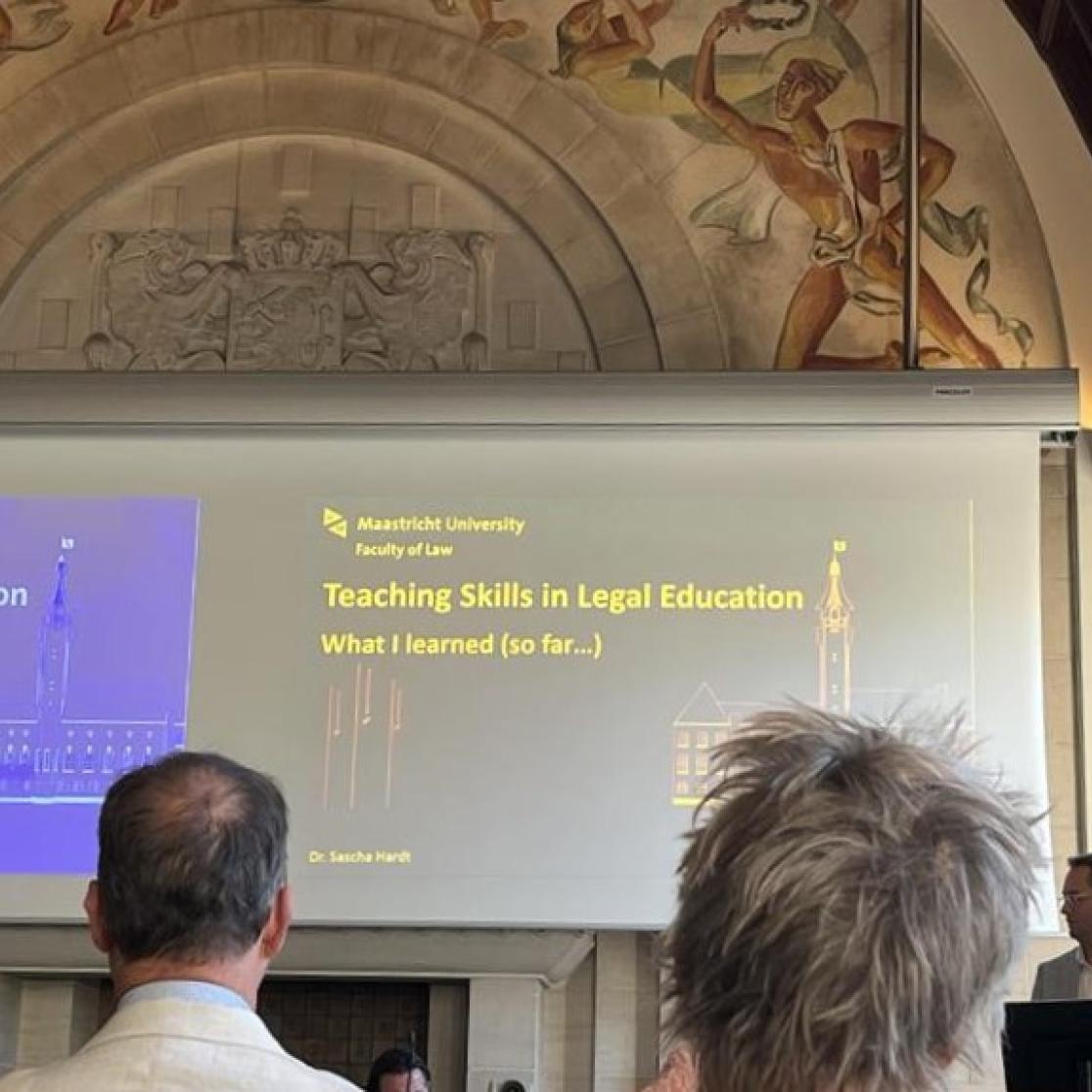Making our curricula Michelin-worthy: skills taught by chefs
Years ago, when I still had a tv, one of my guilty pleasures was watching Hell’s Kitchen. You know, that show in which a certain foul-mouthed Scottish master chef tries to teach a bunch of unskilled wannabees how to prepare a decent meal, predominantly by yelling at them all the time? Quite an example, I know. To my defence, for me it was never the colourful language that made this show so compelling, but rather the gradual development of skills. Everyone who loves cooking (or eating, for that matter) knows that for good food one needs good ingredients. However, in Hell’s Kitchen, the quality of the ingredients, as it turns out, is not the defining factor. From the beginning, all participants get to work with top stuff, but at least in the first half of the season, they somehow manage to turn this into surprisingly inedible meals. Only when they seem to get the hang of all cooking techniques required, when they listen and learn to act on the feedback given (which miraculously mellows the better they listen), when they become skilled, truly skilled in the kitchen, the meals are no longer returned by the guests, but instead are eaten with gusto.
Now, this is not a blog in which I will suggest incorporating some of Ramsay’s ‘motivational techniques’ into our educational system. It is meant however, to turn our attention away from the ingredients for a moment and to the cooking techniques instead. Or rather from teaching substantive law to teaching skills.
Legal skills and skills in legal education
Law schools struggle with skills. We all consider skills to be important (‘a barrister needs to be able to plead, so learn to speak up and how will you ever be able to write down a solid argument when you can’t even spell your own name?!’), but we somehow have trouble integrating skills properly in our curriculum. We aren’t sure what skills are necessary, or where to put it in the curriculum. There is never enough time. Furthermore, who is going to teach skills and more importantly, how do we teach skills? This seems to be a recipe for disaster. Fortunately, no one is yelling at us, and on top of that, we know we have to stir the pot in order to prevent things from burning. Therefore, it is safe to say that the ‘meals we cook’ are palatable; our graduates are competent. But they could be so much better, so much more flavourful, with a bit more attention for skills, theirs and ours.
To set a good example, and to give a proper farewell to Tanja van der Meer, who started her Maastricht career as a legal historian, specialised in Roman law but evolved to become our skills expert in more recent years, a symposium on legal skills and skills in legal education, entitled ‘Past present and future skills’ (Vaardig heden, verleden en toekomst) was organised on 25 October. Key note speaker was Tanja herself, who took us on a journey through her career history and told us what she had learned with regard to learning and teaching. Other speakers were René de Groot on teaching comparative law, Elsje Ronde on rule analysis, William Bull on the different skills in legal education and the importance of them, Sascha Hardt on the skills necessary for teaching skills and David Roef on story telling.
Despite all these different topics and different views, the six speakers were surprisingly – or perhaps not – unanimous and in that, gave off a powerful message.
First of all, different types of legal skills are essential for lawyers. Lawyers not only need knowledge of the law, they also need the skill to analyse and apply the law. Elsje used some telling examples to show us the importance of the skill of rule analysis. Since this is a university, academic skills like research and (legal) writing are a must too, although – as William correctly pointed out – a different range of contrasting views exist in this respect. Additionally, mooting and pleading are important skills to master, especially for those who want to enter legal practice. ‘Law is language’, we were taught by Sascha, using a quote from Saussure. And who doesn’t know some hilarious examples like ‘Ever since President Obama was elected, his administration has engaged in homosexual activity’, or ‘Er zijn kinderen die niet van groente houden. Maak er daarom soep van of draai ze door de saus’. Interesting recipe, that last one. Linguistic skills are necessary for understanding the law, for analysing a rule and using it to solve a problem (rule analysis/legal reasoning), for communicating about it, both in speech and in writing (presenting and writing skills as well as the ability to correctly translate legal terminology), and for convincing others of a certain point of view (mooting). Without these skills, knowledge of the law itself is moot.

Teaching skills requires teaching skills
Even more attention was focussed on the teaching of legal skills in our curriculum. Skills need to be an integral part of the curriculum, not an afterthought. The way this incorporation is done, is subject for debate however. Experience shows that full integration with the ‘substantive’ courses often leads to a watering-down of the skills part, even though from a didactical perspective this approach is to be preferred. Based on years of observation, Tanja pointed out that the result of this approach is that when students fail, this is more often than not caused by a lack of skills (in studying, in making an exam, in planning, in structuring in expressing themselves in an academically correct way etc.) rather than by a lack of knowledge. Therefore, skills education should be leading in the curriculum design, rather than the substantive courses.
But even more important: teaching skills requires teaching skills, as Sascha so eloquently put it. Too often teaching skills courses is regarded as an easy job, one that can be assigned to starting tutors. The opposite, however, is true. Good skills education requires not less, but more didactic skills. Experience in teaching is therefore more essential when teaching skills then when teaching substantive courses. Additionally, the development of skills courses in more dynamic and demanding than that of substantive courses.
How very true all the above said is became clear when David took the centre stage and told us a story about story telling. The law is storytelling, he explained, and nothing better than a good story to drive the message home. Energetic and captivating, he not only told us about the importance of didactics, but essentially showed us, in a way only a truly experienced teacher can.
Stir the pot, spice up the meal. Good food needs good ingredients, without a doubt. But a dish only becomes a Michelin-worthy meal when you know how to handle what goes into the pot. Let’s not waste good ingredients anymore, but make sure we all have the skills to make them shine!
M.F. Lenaerts
Mariken Lenaerts (1981) is Assistant Professor at the Department of Foundations of Law. Her expertise includes legal history, legal philosophy and family law. Her current research focuses on the possible implementation of permaculture ethics into law.

-
Overriding Mandatory Rules in International Arbitration: Balancing Business Freedom and State Interests
Imagine two companies from different countries enter a business deal. They pick a neutral country’s law to govern their contract and agree to arbitrate any disputes, thinking they can sidestep each other’s national courts. But what if one country’s law absolutely prohibits something in the deal –...

-
What is coercion?
According to classic economic thinking—and to common sense—if two parties agree to a deal, both are made better off, otherwise they would not have agreed. This idea is also reflected in contract law, at least in its basic form, treats consent as the cornerstone of a valid contract. If both sides say...

-
Should Employees Participate in Corporations? A Law and Economics Perspective.
When we speak of corporations, we usually think of shareholders and managers: the former provide capital, the latter make decisions. Yet, without the contributions of its employees, no corporation can survive, let alone thrive. In my PhD thesis, I answered the question of how employee participation...
